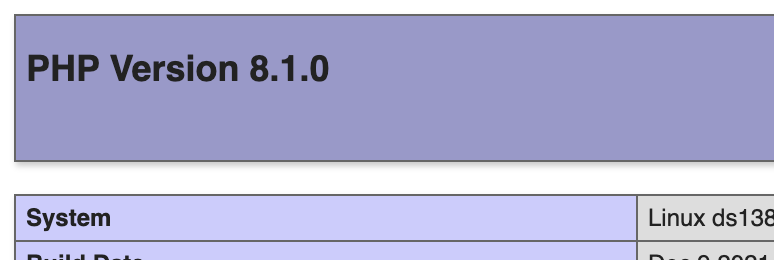Learning About Your Server's PHP
One of the first things I do when I install software on a new server, or one I haven't been at for a while, is view the PHP information page. It contains everything I need to know about the installation on that server.
The information page contains a large amount of information. People relatively new to PHP should be able to understand some of it. Persons deeply knowledgeable about PHP may be able to understand all of it.
Why look at it at all?
Because there are likely to be times when you will need a bit of information the page contains.
The information page includes form submission limits, for example. It reveals memory limits, for another example, and how long a script will run before automatically quitting.
When you have your information page open in your browser, and you know what you are looking for, your browser's search function may be used to help locate it.
To create an information page, use this one line of code:
<?php phpinfo() ?>
Save it with any *.php file name (such as info.php) and upload it to the server. Type its URL into the browser and be prepared to see lots and lots (and lots) of information.
The first thing I look for is the PHP version, which is in the header of the report.

Then, I do a quick scan for the information I might need — MySQL version, memory limit, whether file_get_contents() and other file import functions can use HTTP/HTTPS internet URLs (found at the "allow_url_fopen" directive line), the sendmail path, whether cURL is included (found at the "cURL support" directive line), … .
Some of the directives may have a local value and a master value. When those two values are different, the local value applies only to the directory (and its subdirectories) where your information page is running.
On most business-class servers, local values can be tweaked with an .htaccess file directive. As an example, tweaks might be directives to change form submission limits.
The PHP information page generated with phpinfo() contains over 600 lines of information.
You are likely to consider at least some of the PHP info on the page to be useful to know.
(This content first appeared in Possibilities newsletter.)
Will Bontrager











